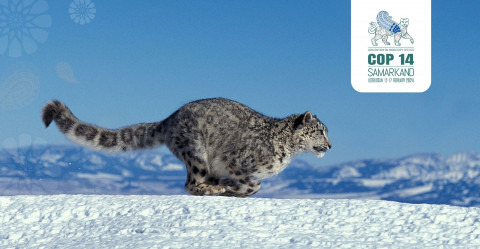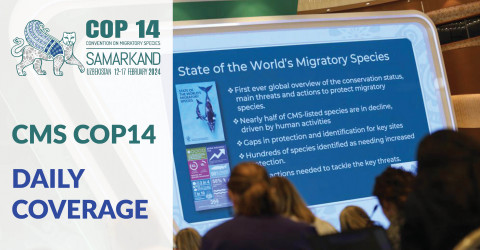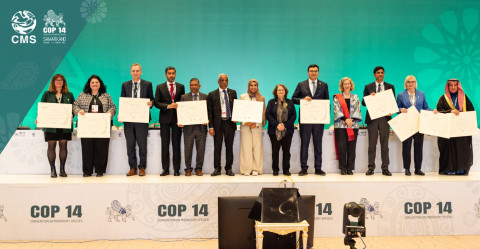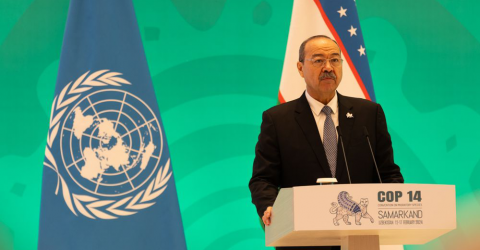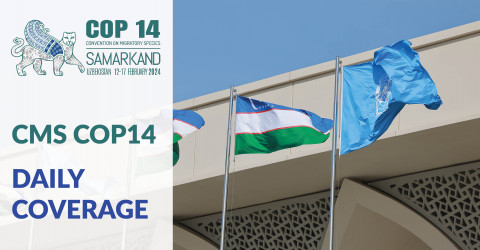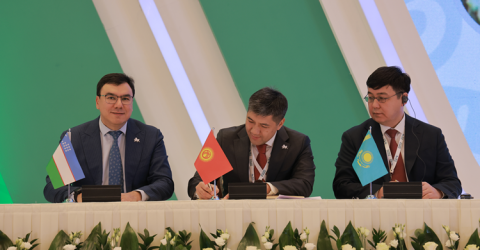The Fourteenth Session of the Conference of the Parties
to the Convention on the Conservation of Migratory Species of Wild Animals
SLOGAN
“Nature Knows No Borders”
+ Learn more about the slogan's significance
The slogan reflects the core of the CMS mandate and builds on the historic resolution of the UN General Assembly in 2021: "Nature knows no borders: transboundary cooperation – a key factor for biodiversity conservation, restoration and sustainable use" (A/75/L.73). The proposal, led by countries from Central Asia, urged all UN Member States to increase international and transboundary cooperation to maintain and enhance the ecological connectivity of transboundary habitats, cross-border protected areas, and ecosystems that are either vulnerable or form part of the migratory range of specific species.
WHEN
12 - 17
February
2024
WHERE
Samarkand
Uzbekistan
Asia
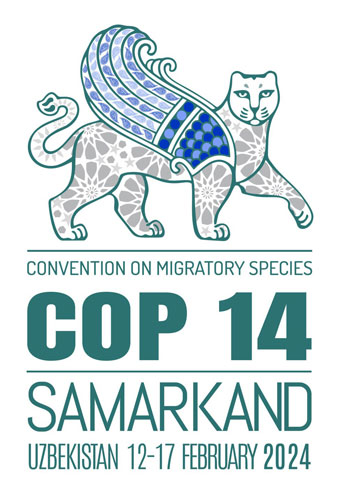
+ Learn more about the logo's symbolism
The logo for the conference features a winged snow leopard adorned with a pattern that brings to mind the famous lapis lazuli tiles of Central Asian monuments. The snow leopard is a keystone species in Uzbekistan, with a range that extends across 12 countries. The powerful and elusive big cat is also the legendary symbol of Samarkand, which is widely found throughout the country, from the magnificent entrance of the historic Sher Dor Madrasah school to Uzbekistan’s national bank notes.
While the snow leopard is a sacred symbol of power and benevolence, its conservation status is of great concern, with only 2,700 to 3,300 individuals thought to exist in the wild (Source: IUCN Red List of Threatened Species).
The 14th Meeting of the Conference of the Parties to the Convention on the Conservation of Migratory Species of Wild Animals (CMS COP14) is set to take place in the historic city of Samarkand, Uzbekistan, from 12 to 17 February 2024.
The conference will be convened under the slogan, "Nature knows no borders", which, along with the logo, is a reminder that the journeys of migratory species do not adhere to political boundaries, and that their survival is dependent on international collaboration and transboundary conservations efforts.
CMS COP14 is a significant international meeting where governments, scientists and stakeholders will come together to agree on strategies for the conservation of migratory species and their habitats.
This meeting will be one of the most significant global biodiversity gatherings since the adoption of the Kunming-Montreal Global Biodiversity Framework (Biodiversity Plan) in 2022, and will address a wide range of important conservation priorities and new initiatives, including many that will support the implementation of the GBF. The triennial international meeting will highlight the issues of habitat conservation and restoration as well as threats to species such as overexploitation, habitat loss and fragmentation, pollution and climate change. It will also provide a unique opportunity for the launch of major new reports and guidelines, including the first-ever report on the ‘State of the World’s Migratory Species’, new global guidelines on light pollution, and best practices for linear infrastructure to minimize impacts on migratory species.
COP14-associated events and meetings such as the 54th Meeting of the CMS Standing Committee, the High-Level Segment will take place in the same location on 11 February. The Migratory Species Champion Night will take place in the evening of the first day of the COP, on 12 February.




